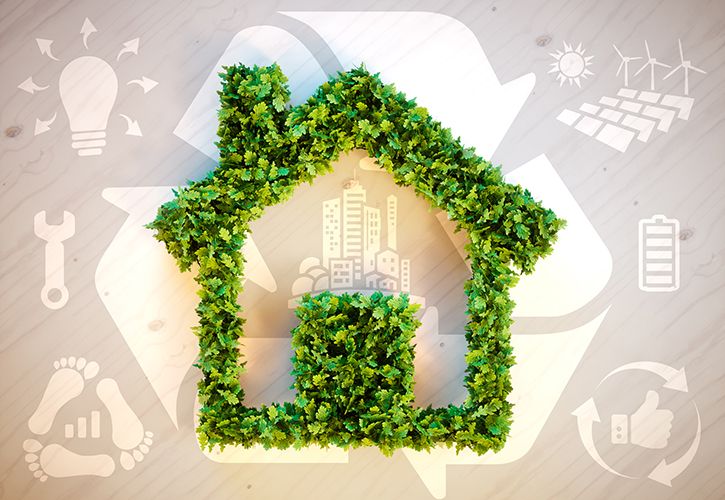UK DIY News
Half Of Consumers Would Prefer To Buy A Low Carbon Home

New research from KPMG in the UK indicates that a low carbon home would be the preference for around half (49%) of all UK adults if looking to move, but when it comes to improving the efficiency of their own home, costs, inconvenience and misinformation are putting people off.
The survey of 2,000 UK adults carried out by Opinium Research during August 2024, highlights that almost two thirds (63%) of respondents believe that UK households need to reduce the emission from their homes.
The main benefits for upgrading properties to be lower carbon are;
reduced bills (53%),
wasting less energy (44%),
helping to reduce climate change (44%),
reduced reliance on oil and gas (28%) and
achieving a more comfortable home (24%).
However, despite a high level of enthusiasm for lower carbon homes, understanding around some of the new technologies is inconsistent.
Over a third of UK adults (37%) admit to knowing nothing about heat pumps, while a quarter of UK adults (26%) think heat pumps aren’t suitable for UK homes. Half (49%) of respondents believe heat pumps will require huge changes to homes in order to work; around a fifth (19%) think that they won’t work in really cold weather and a quarter (25%) believes the UK doesn’t get enough sun for solar panels to work.
Conversely, half of respondents (50%) believe that solar panels and heat pumps will help save money on energy, while 37% believe they will make homes more comfortable.
Simon Virley CB, Vice Chair and Head of Energy and Natural Resources at KPMG in the UK commented:
“The UK has some of the leakiest, inefficient houses in Europe, and we are already well behind on adopting lower carbon technologies like heat pumps, compared to our neighbours. To date, we have seen a stop-start approach to policymaking in this area. This has led to confused consumers, who widely see the benefits but just don’t know where to begin, and a lot of negative messages around costs and disruption have been allowed to fill the vacuum.
“A step change is now needed to accelerate the uptake of low-carbon heating solutions and energy efficiency measures in the UK. It requires a fundamentally different approach to overcome the barriers to mass consumer adoption - cost, complexity and convenience -, to drive more coordinated delivery, and to unlock much-needed private investment.”
The main deterrent for people making upgrades to their homes that could improve efficiency and lower emissions were the upfront costs, an issue for almost half of all respondents (48%); a fifth (20%) didn’t think that their property would be suitable for upgrades, while a similar amount (19%) is worried about the reliance on higher electricity prices. One in seven (14%) said that they hadn’t even though about it, while 12% didn’t know where to look for information.
Financial support from the Government was the number one intervention that would encourage households to make upgrades (34%), followed by removal of upfront costs such as through interest free loans (25%) and better information and guidance on suitable upgrades (21%).
Earlier this year KPMG UK published The heat is on, a bold delivery and funding model that has the potential to move the dial on decarbonising homes and buildings and lays the groundwork for the fundamental changes needed to accelerate the UK’s progress towards net zero.
Source : KPMG UK
Image : Petmal / iStockphoto.com / 538895150
Insight provides a host of information I need on many of our company’s largest customers. I use this information regularly with my team, both at a local level as well as with our other international operations. It’s extremely useful when sharing market intelligence information with our corporate office.











































